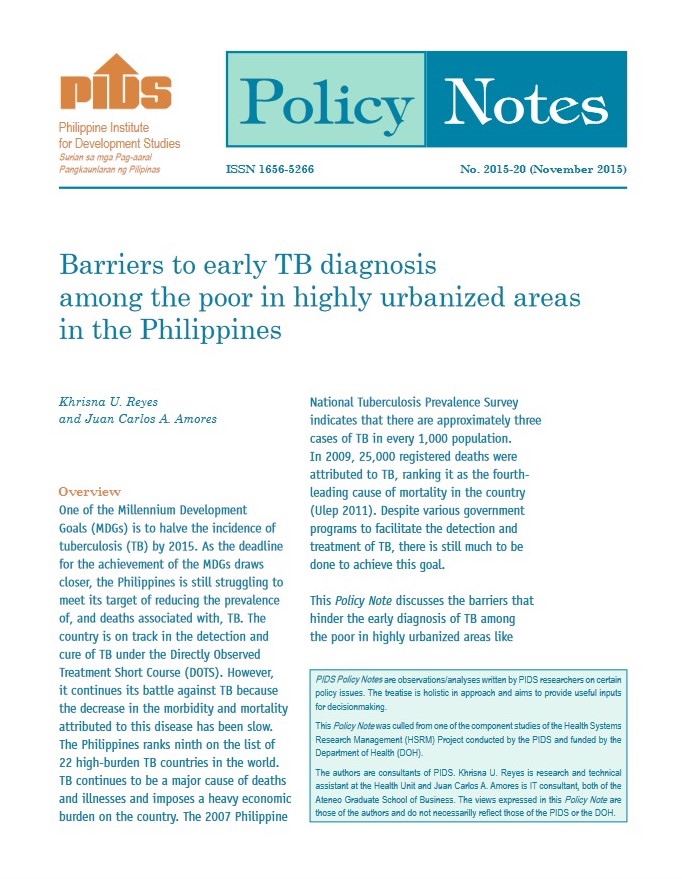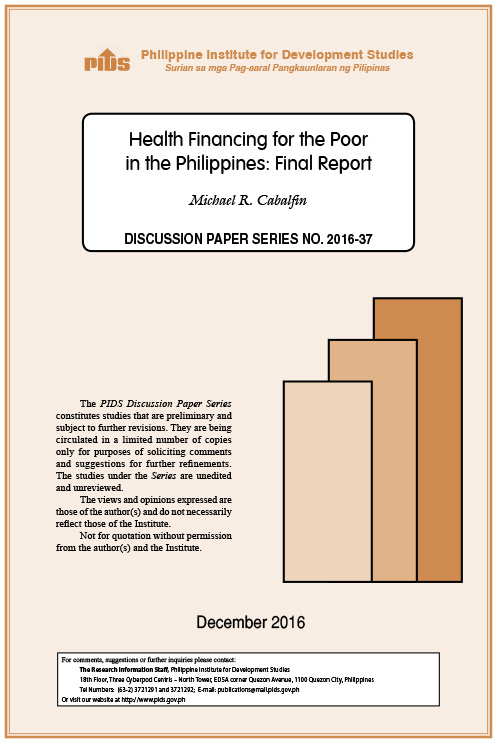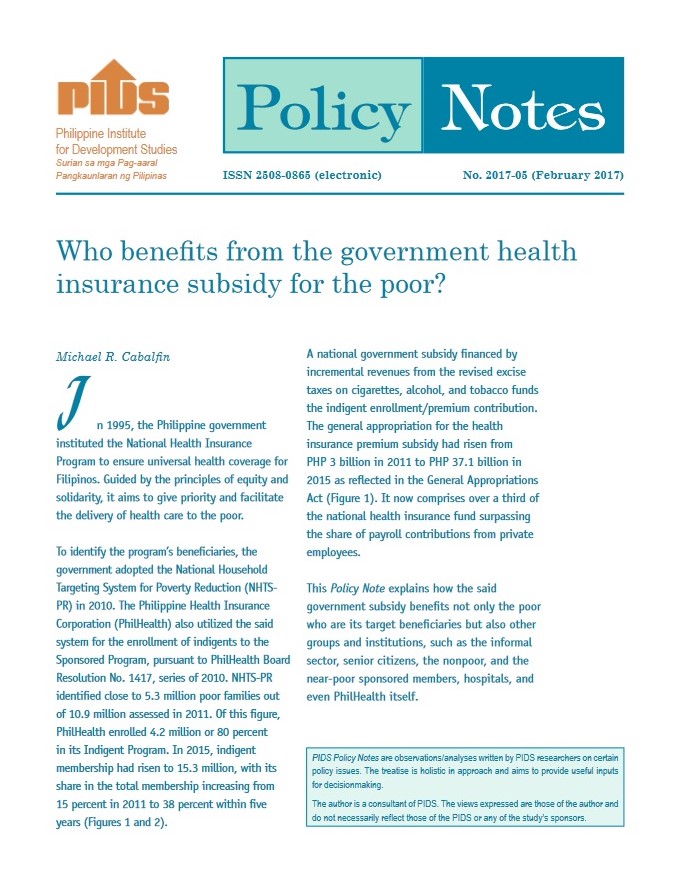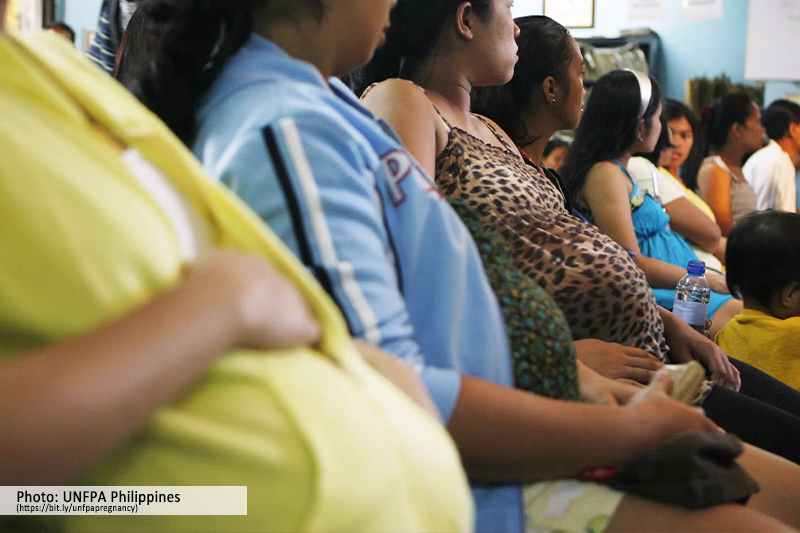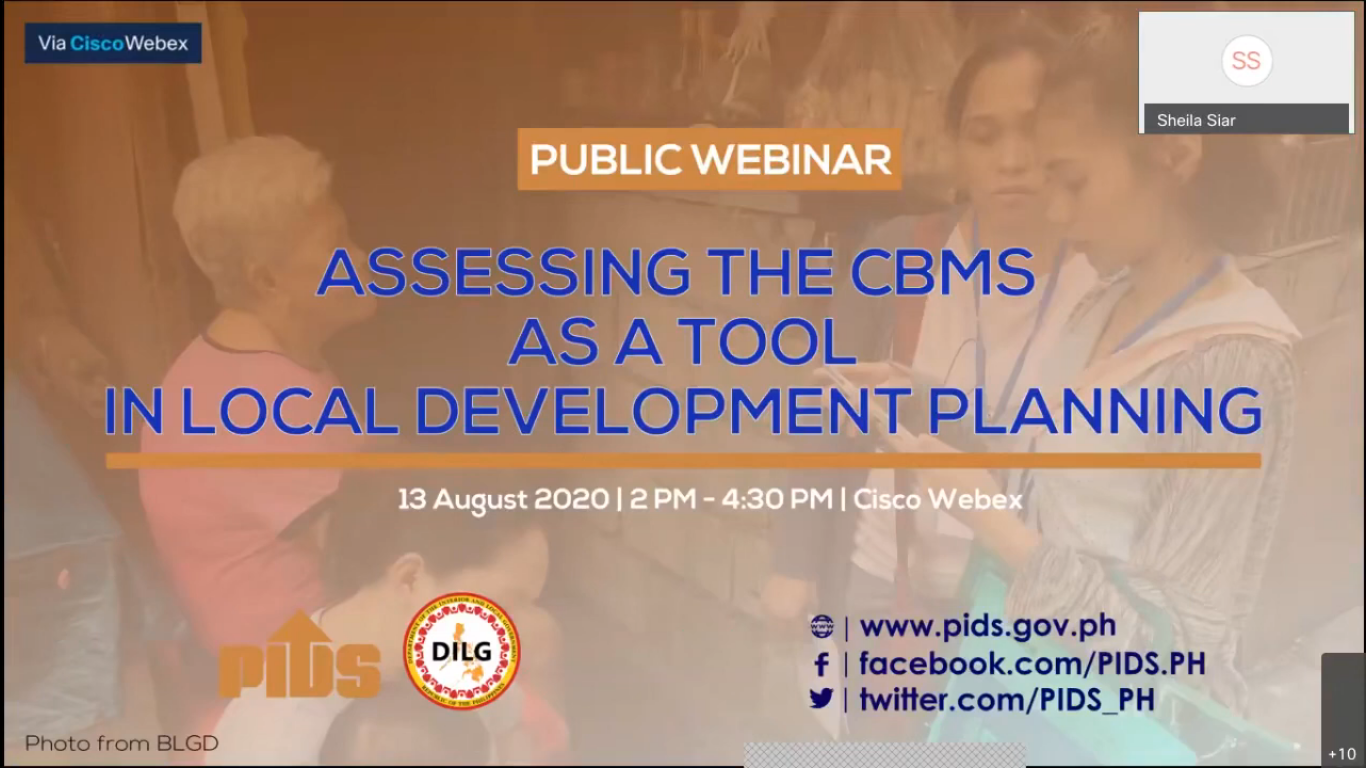Providing information on the implications of high fertility and family planning services should be an integral component of any poverty alleviation package.
Thus advised Dr. Aniceto C. Orbeta, senior research fellow at the Philippine Institute for Development Studies (PIDS), in his paper, Population and Poverty: A Review of Links, Evidence and Implications for the Philippines.
Orbeta stressed that while it has been argued that it is the rational choice of the poor to have a larger family size, there are indications that make this claim difficult to believe in the case of the Philippines.
The study pointed out that the poor do not have better control over their fertility as clearly indicated by the lower contraceptive prevalence rates, higher unwanted fertility and higher unmet need for family planning among them. Such situation results from their limited access to family planning and allied services.
Only when we have a better understanding of fertility preferences, which can come only with good family planning services, can we better target to influence those preferences, Orbeta explained.
Likewise, Orbeta warned that fertility choices do not only have current effects but also have intergenerational impact.
There is overwhelming evidence that high fertility leads to decreased investments in human capital. This has been identified as the main cause of the transmission of poverty from one generation to another, Orbeta noted.
Thus advised Dr. Aniceto C. Orbeta, senior research fellow at the Philippine Institute for Development Studies (PIDS), in his paper, Population and Poverty: A Review of Links, Evidence and Implications for the Philippines.
Orbeta stressed that while it has been argued that it is the rational choice of the poor to have a larger family size, there are indications that make this claim difficult to believe in the case of the Philippines.
The study pointed out that the poor do not have better control over their fertility as clearly indicated by the lower contraceptive prevalence rates, higher unwanted fertility and higher unmet need for family planning among them. Such situation results from their limited access to family planning and allied services.
Only when we have a better understanding of fertility preferences, which can come only with good family planning services, can we better target to influence those preferences, Orbeta explained.
Likewise, Orbeta warned that fertility choices do not only have current effects but also have intergenerational impact.
There is overwhelming evidence that high fertility leads to decreased investments in human capital. This has been identified as the main cause of the transmission of poverty from one generation to another, Orbeta noted.

